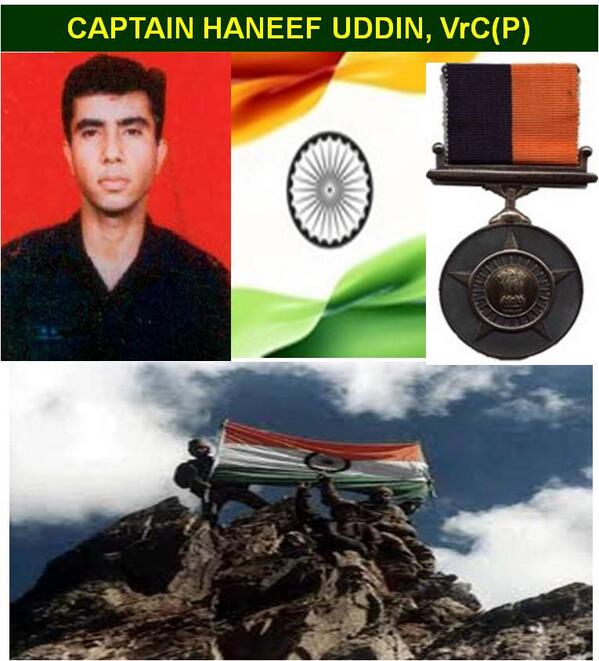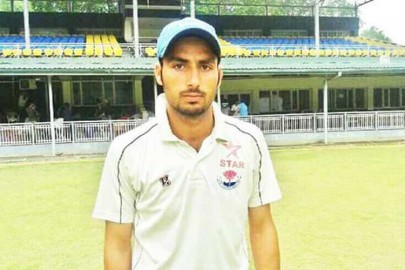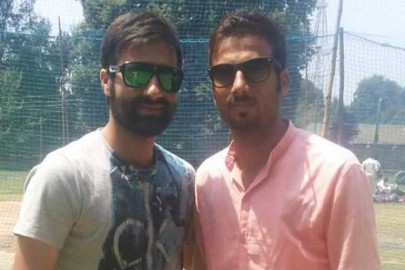NEW DELHI :
26 July was observed as the 16th anniversary of the so-called Kargil War or the Operation Vijay which occurred in 1999.
In this three month long war which began on 3 May, the Indian army operation was declared accomplished on 26 July and hence the date is marked as the Kargil Day or ‘Vijay Diwas’ to be particular and has an immense significance in Indian history.
PM Modi said on the eve of the anniversary, “I salute all the brave soldiers who lost their lives in the Kargil war, for their sacrifice and valor, on the occasion of Kargil Vijay Diwas. Kargil war though fought on borders had significant contribution from every village, every town of the country.”
Like him his cabinet colleague and the Minister of Finance Arun Jetly twitted yesterday, “Today, we remember & salute our brave soldiers who gave supreme sacrifice to protect the motherland in the Kargil war.” However, he was reminded by the followers that he was not correctly remembering the day; it was the next one, 26 July. One follower retorted on his tweet, “Sir Kargil Divas is tomorrow, not today dnt be exited to tweet but think twice b4 try to grab voter attention.”
These instances may be found illustrious enough how the national leaders take “supreme sacrifices” of war heroes in a disingenuous way. They are even not publically sure about the date of the sacrifice, then what much should be expected of them. May their act was inadvertent but it gives a message of oblivion.
The American poet Richard Watson Gilder hoped in his composition, “The ballads of martyrs be sung/at each anniversary of martyrdom/so that generations to follow value/the sacrifice of our Heroes./….Lest we forget.”
One Indian poet has paid his homage to the martyrs in these words, “Shaheedon ke chitaon par lagenge her baras mele. Watan pe marne walon ka yehi baqi nishan hoga (On the pyres of martyrs, celebrations shall take place every year, memorial of those shall be kept intact this way for surrendering their lives on the nation).”
However, not only the national leaders but even the public belies such romantic expectations.
Let us understand this reality from the instance of one hero of the Kargil War, Captain Haneef Uddin, Veer Chakra (P).
He was an officer of the 11th Battalion, The Rajputana Rifles of the Indian Army laid down his life defending the country at an altitude of over 18000 ft in 1999. When he died on 6 June as one of the first causalities of the War but with much strategic gains, he was less than 25 years of age.
Times of India reported on 23 July when his corpse reached Delhi, “Thousands of Delhiites lined the streets of the capital to salute their brave hero, Captain Hanifuddin, who laid down his life fighting intruders in the Kargil region. When the body was brought to the Sajjadanashin Dargah in Nizamuddin, Hindus and Muslims stood side by side to pay their respects to the martyr. Since people had lined up on both sides of the road, it took almost an hour for the cortege to traverse the short distance between the Dargah and the cemetery. People seemed overwhelmed with the reported heroics of the soldier. “The country is blessed with such brave sons who sacrifice their lives like this,” said a mourner. The captain from the Rajputana Rifles was buried with full army honors as befitting a war hero.”
“16 years on” laments his memorials Facebook account, “Do we still remember? The road leading to Captain Haneef Uddin’s house was named after him. His name engraved on a stone to tell the world, ‘Here lived the Hero’. Then one day, the stone was replaced with a shabby metallic board, at a height convenient for people to stick posters. Alongside, a big blue board was also put up later, but even then no one thought of giving the Martyr the respect due to him. Same is the condition of the school named after Captain Haneef Uddin. No one knows! We honor our Martyrs so that future generations take inspiration but this is how we remember our Martyrs.”
Captain Haneef was a science graduate, multifaceted talent and trained computer expert of Delhi University from its Shivaji College where he himself was crowned as ‘Mr Shivaji’ during his studies before joining the Indian Military Academy in 1996. He was commissioned into the army on June 7, 1997. Exactly two years later he died.
There is no doubt that he could have pursued some other lucrative career or would have become an all-imposing politician and deliver sermons on nationalism seeing his popularity in the college, but he chose to devote himself for the defense of his country and ultimately offered it his supreme sacrifice. His name denotes, “someone single-minded in his religion”. He was truly single-minded in his religion, patriotism.
During parliamentary elections, Narendra Modi created a controversy by using the name of another Kargil hero Vikram Batra for electioneering, quoting his famous rhetoric “Ye dil mange more.” Disgusted with his non-serious and populist stance Batra’s mother joined AAP in annoyance. Sadly, neither Modi nor the AAP leader Arvind Kejriwal could take a little pain to go to Haneef’s house which is not far from their official residences and pay homage to the young man, who left his mother in utter pain and lasting sorrow for defending the motherland. They could have even sent someone to register their concern. But, there is a noticeable silence from both of them and also from their followers. No RSS, no Bajrangdal, no Shiva Sena or any other patriotism vigilantes and no Congress secularists are around. Even, Muslim organizations are as distant on the occasion as others.
At the time of Kargil War I was in my home town in Rajasthan. One day I was waiting for any public transport to reach home from some other place. Hopelessly, after waiting much for it, I signaled to a rider nearing me to give me lift on his bike. He cooperated. He happened to be an RSS Pracharak of our district.
Finding me to be a Muslim he said, “Sir, it is the right time that Muslims should show their patriotism by donating blood to the Kargil combatants.”
I retorted, “Mister, the blood already donated for the purpose is being sold in Delhi from where I am here. Don’t worry, we will make bigger sacrifice for the nation than you, if the time so arise.”
This episode makes me thoughtful and I wonder whether the nation which forgets the highest sacrifice of its citizens like Captain Haneefuddin deserves even a small drop of blood from its people.
Haneef’s father died when he was only seven years old. His widow and Haneef’s mother, Hema Aziz, valiantly responded seeing his dead body, “As a soldier Haneef served his country with pride and dedication. There cannot be a greater statement on his valor than his death which came fighting the enemy.”
Like Captain Haneefuddin, many other Muslim soldiers surrendered their lives on the anvil of Kargil War along with many other fellow countrymen from the cross sections of society. A few names may be noted from the available list: Lance Naik Ahmed Ali, Lance Naik Gulam Mohammed Khan, Havaldar Abdul Karim, Rifleman Mohamad Farid, Rifleman Mohamad Aslam, etc.
It is a common speculation that none of them would have been remembered on the day, including over 500 others.
It has been marked by different commentators that Muslim martyrs’ number should be any figure between 10-25% of the overall casualties, officially endorsed as 527. Since it was explicitly disproportionate to the presumed number of Muslim soldiers in the Indian army, less than 1%, it unbelievably surprised many and also raised election time controversies: who led to the Kargil victory, Muslims or Hindus? The Kargil War is also known for ‘coffin scandal” wherein allegedly people in the establishment at that time took undue advantage in their procurement. Consequently, the erstwhile defense minister had to resign.
The Kargil Day comes and reminds us of many things. It makes us fresh with the great sacrifices of the war heroes and inspires us to make similar sacrifice for a noble cause. It saddens us seeing hypocritical rhetoric from podiums. It makes us ashamed on knowing, how many people use war and war heroes for political and communal goals.
The poet apprehended “Lest we forget” and we really forgot them.
Sorry martyrs! We didn’t deserve your grace!!
Contributor is a social activist, analyst and author of many books including his recent one, Islam in 21st Century: The Dynamics of Change and Future-making
source: http://www.countercurrents.org / CounterCurrents.org / Home / by Abdul Rashid Agwan / July 27th, 2015











